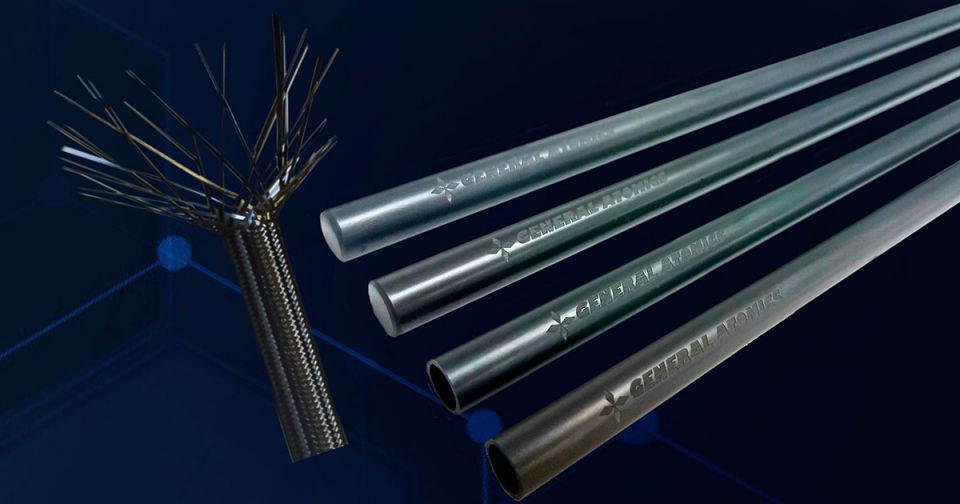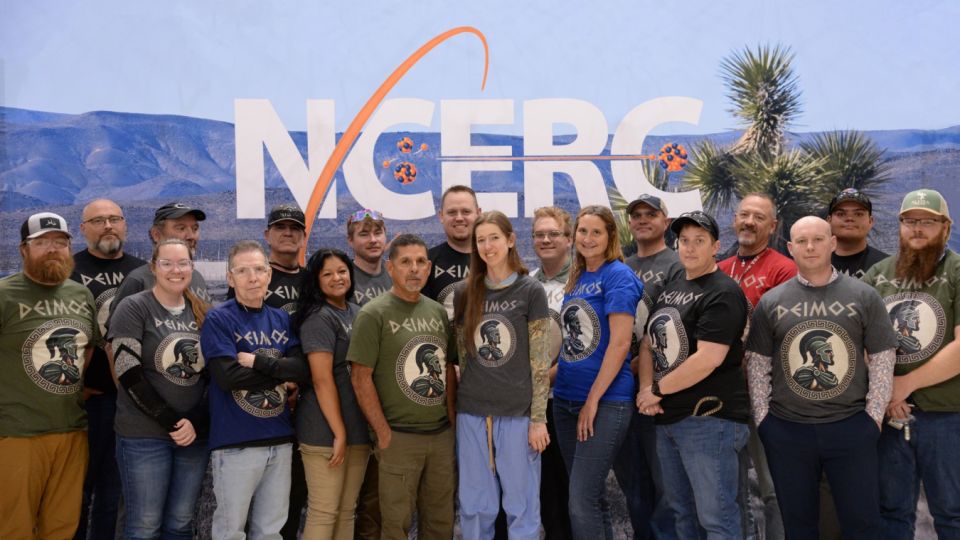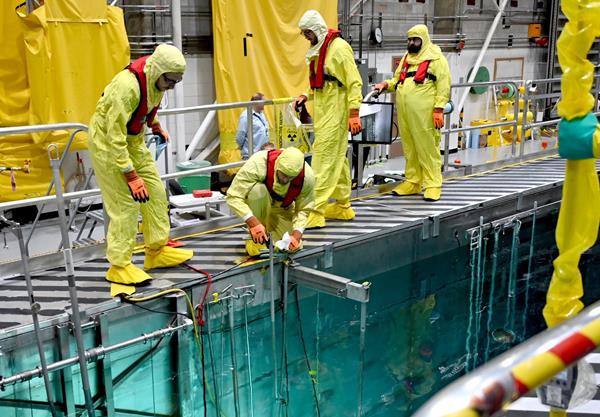Global Nuclear Fuel gets approval for fuel enriched up to 8 percent U-235
GE Vernova, which leads Global Nuclear Fuel (GNF) with partner Hitachi, announced February 14 that GNF has received approval from the Nuclear Regulatory Commission to manufacture, ship, and analyze the performance of nuclear fuel enriched with up to 8 percent uranium-235.
With the NRC’s approval of GNF’s fuel fabrication license amendment, the company’s manufacturing facility in Wilmington, N.C., becomes the first commercial facility in the United States to hold a license to fabricate fuel containing up to 8 percent U-235, according to GE Vernova. The NRC has issued a certificate of compliance allowing GNF to ship fuel bundles using the company’s RAJ-II shipping container. The agency has also approved licensing topical reports for advanced nuclear methods that will permit GNF to analyze fuel with enrichments above the 5 percent U-235 limit for conventional low-enriched uranium (LEU) fuel.
About U: Uranium enriched to between 5 and 10 percent U-235, like that GNF plans to fabricate into fuel, can be referred to as LEU+ (because it exceeds the 5 percent enrichment of conventional light water reactor fuel but stays within the NRC’s Category III 10 percent enrichment limit for fuel cycle facilities). It can also be called high-assay low-enriched uranium (HALEU), a term for all uranium enriched above 5 and below 20 percent U-235. Uranium enriched to 20 percent U-235 or above is considered high-enriched uranium. Under current NRC regulations, light water reactor fuel cannot exceed 5 percent U-235 without a formal exemption.
Fuels with enrichments above 5 percent are being developed under the Department of Energy’s Accident Tolerant Fuel program. Fuel concepts from GNF (and from fuel vendors Westinghouse and Framatome) include novel claddings and fuel pellet compositions intended to help fuel assemblies withstand high temperatures and remain in a reactor core longer, which also makes them suitable for higher enrichments. Potential advantages of increased enrichment include operational flexibility, power uprates, higher fuel burnup, and fewer fuel assemblies over the lifetime of a reactor.
“These regulatory milestones build on our long history of designing and fabricating fuel for the nuclear industry,” said Mike Chilton, executive vice president of GNF. “We will continue to innovate to help our customers run their plants even more efficiently and be ready to support the next generation of reactor technology with reliable, flexible fuel products as the industry progresses to the use of higher enrichments.”
Name game: GE made its name in nuclear with generations of boiling water reactor designs, and that work continues through its energy subsidiary, recently named GE Vernova. GE plans to spin off GE Vernova in the second quarter of 2024.
The names of GE Vernova’s nuclear businesses—GE Hitachi Nuclear Energy (GEH), formed by a partnership between GE Vernova and Hitachi, and GNF, a GE Vernova–led venture with Hitachi—have not changed.






